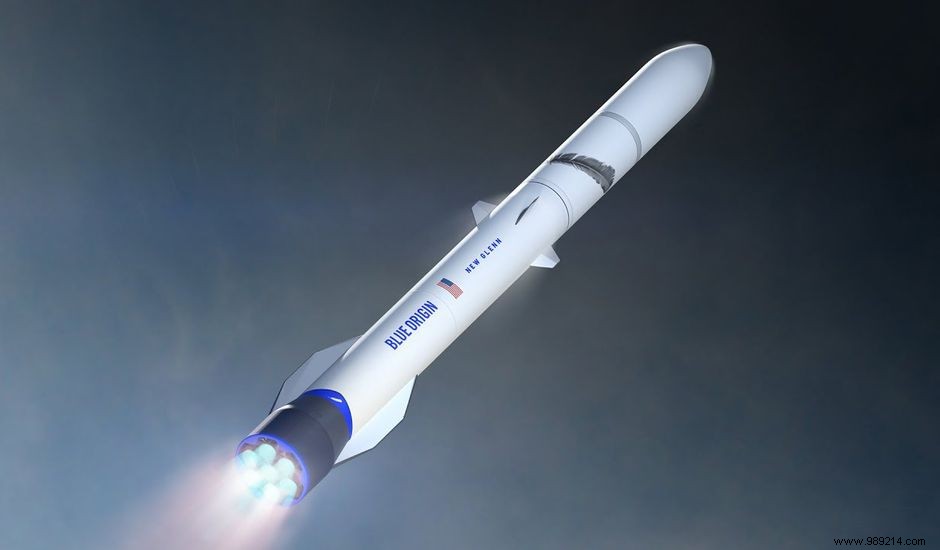Blue Origin's upcoming New Glenn rocket is set to join NASA's commercial launcher fleet, enabling missions from the mid-2020s onward. In time, it could even carry humans to space.
Founded in 2000 by Jeff Bezos of Amazon, Blue Origin has emerged as SpaceX's primary rival in the space industry. Like SpaceX, it provides NASA with launch services via its proven New Shepard suborbital vehicle for payload delivery.
For years, Blue Origin has been developing the 95-meter-tall New Glenn rocket, capable of lifting up to 14 tons to geostationary orbit or 50 tons to low Earth orbit. Designed to slash launch costs, it features reusable first stages, mirroring SpaceX's approach.
Blue Origin plans two first-stage variants, each reusable for up to 25 flights, as stated by Jeff Bezos. The maiden flight was targeted for 2021.
Once operational, New Glenn will integrate into NASA's commercial launch vehicle roster for missions starting in the mid-2020s, as announced this week by NASA and Blue Origin.
“This contract strengthens our longstanding partnership with NASA, advancing science and exploration for Earth's benefit,” said Jarrett Jones, senior vice president of New Glenn. “We're honored to be included in the NASA Launch Services Catalog.”
This agreement doesn't mandate NASA usage but positions Blue Origin to bid on contracts under NASA Launch Services II, extending to December 2027. There, New Glenn will vie against SpaceX's Falcon Heavy and United Launch Alliance's Delta IV Heavy.

Beyond orbital launches and New Shepard operations, NASA and Blue Origin eye deeper collaboration. The company has built the Blue Moon lunar lander for up to 3.6 tons of payload delivery to the Moon's surface.
Blue Origin is also advancing a human-rated version of Blue Moon, potentially supporting NASA's 2024 Moon return.